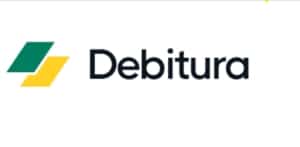The Central Bank of Nigeria (CBN) has launched a new online platform for submitting microfinance bank (MFB) license applications, known as the CBN Licensing, Approval, and Other Requests Portal. The new online platform replaces the previous laborious approach of physically submitting MFB license applications to the CBN. These are the steps to apply for an MFB license online.
- Open a browser, input the URL https://larp.cbn.gov.ng/to access the application. On the navigation bar below, click on “Register”.
- Select an “application type”, from the drop-down list above and then enter the proposed institution name (as reserved by CAC).
- Enter the CAC Reservation Code.
- Enter the Applicant details and submit the registration details. NOTE: If the proposed application name is already an existing financial institution, the system will not accept the name.
- If the LGA of the proposed application is in a Tier 1 LGA location, you will be required to pay the minimum deposit based on the location of the proposed MFB.
- If the LGA of the proposed MFB is not in a Tier 1 LGA location, you may select the Tier of the application you want to register the application.
- The applicant’s email address must be verified. This will involve an OTP being sent to the applicant’s email address. After the verification, the user can continue with the registration process.
- The applicant would be required to input the OTP that was sent to their email to complete verification to proceed.
- The applicant would be required to check the “I agree with the terms of use” and click on register to complete the registration process.
- Once the registration is completed, an email will be sent, and the applicant will be required to make payments for the Application Fee and the Minimum Capital Deposit at his preferred Bank within 72 hours.
- Then see screenshot for the mail received upon registration:
- Once the Bank has made your payment, they will give the applicant a printout. The applicant is expected to wait for 24 – 72 hours for the payment to be verified and approved by CBN. When the payment process has been completed, an email with the applicant username and default password will be used to log into the system.
- Thereafter, the applicant will be prompted to change your password. Ensuring that the password consists of Uppercase, Lower Case, Number, Special Character, and it must be a minimum of 8 characters.
A Microfinance Bank in Nigeria is a specialized financial institution dedicated to providing affordable and accessible banking services to the unbanked and underserved portions of the population, particularly micro-entrepreneurs and small enterprises.
Microfinance Bank (MFB) is any company licensed by the Central Bank of Nigeria (CBN) to carry on the business of providing financial services such as savings and deposits, loans, domestic funds transfer and non-financial services to microfinance clients.
What are the specific objectives of the new microfinance policy?
The specific objectives of the microfinance policy are to:
- Make financial services accessible to a large segment of the potentially productive Nigerian population which would otherwise have little or no access to financial services.
- Provide synergy and mainstreaming of the informal sub-sector into the national financial system.
- Enhance service delivery by microfinance institutions to micro, small and medium entrepreneurs (MSMEs).
- Contribute to rural transformation by mobilizing savings.
- Promote linkage programme between microfinance institutions (MFIs), Deposit Money Banks (DMBs), Development Finance Institutions (DFIs), specialized Funding institutions.
- Create employment opportunities and increase the productivity and household income of the economically active poor in the country, thus enhancing their standard of living.
- Promote a platform for microfinance service providers to network, exchange view and share experience.
Who can establish a Microfinance Bank?
Microfinance bank can be established by individuals, groups of individuals, community development associations, private corporate entities or foreign investors.
What are the regulatory and operational framework for microfinance banks?
Microfinance banks are among the specialised banks and other financial institutions governed by the CBN’s supervisory guidelines outlined in Sections 61-63 of the Banks and Other Financial Institutions Act, 2020 (BOFIA) (as amended) and Section 33(1)(b) of the CBN Act 7 of 2007. The following regulations govern the operation of Microfinance Banks in Nigeria.
- Central Bank of Nigeria (CBN) Act 2007;
- Bank and Other Financial Institutions Act 2020;
- Central Bank of Nigeria Guidelines for the Regulation and Supervision of Microfinance Banks in Nigeria, January 2020.
How many categories of MFB licences are available?
There are four (4) categories available to promoters based on geographical spread:
- Tier 1 Unit Micro Finance Bank (with urban authorization): They are licensed to operate in banked and high-density regions, with a maximum of four (4) branches outside the main office within five (5) contiguous Local Government Areas recognized by the CBN. The minimum share capital for this type of licensing is N200,000,000 (Two Hundred Million Naira).
- Tier 2 Unit Micro Finance Bank (with rural authorization): They are licensed to operate solely in rural, unbanked, or underbanked areas and may open one (1) branch outside the main headquarters within the same Local Government Area. A Tier 2 Unit Micro Finance Bank has a minimum share capital of N50,000,000 (fifty million naira).
- State Microfinance Bank: This type of Microfinance Bank is permitted to operate in a single state or the Federal Capital Territory. It is permitted to open branches within the same state or FCT, subject to prior written approval from the CBN for each new branch or cash center. It may not open more than two branches in the same Local Government Area (LGA) unless it has established at least one branch or cash center in each LGA in the State. A newly licensed State Microfinance Bank cannot begin operations with more than ten (10) branches. State microfinance banks must maintain a minimum capital of one billion naira (₦1,000,000,000).
- National Microfinance Bank: This Microfinance Bank is authorized to operate in multiple states, including the Federal Capital Territory. A newly licensed National Microfinance Bank is prohibited from commencing operations with more than ten (10) branches. National microfinance banks must have a capital barrier of five billion naira (₦5,000,000,000).
What are the permissible business activities of the Microfinance Bank?
A Microfinance bank is allowed to offer the following services to its clients:
- Acceptance of various types of deposits including savings, time, target and demand deposits from individuals, groups and association;
- Provision of credit to its customers;
- Provision of housing micro loans;
- Provision of ancillary services such as capacity building on record keeping and small business management and safe custody;
- Issuance of debentures to interested parties to raise funds from members of the public with the prior approval of the CBN;
- Collection of money or proceeds of banking instruments on behalf of its customers including clearing of cheques through correspondent banks;
- Act as agent for the provision of mobile banking, microinsurance and any other services as may be determined by the CBN from time to time, within the geographic coverage of its licence;
- Appoint agents to provide financial services on its behalf in line with the CBN Agent Banking Guidelines, within the geographic coverage of its licence;
- Provision of payment services such as salary, gratuity, pension for employees of the various tiers of government;
- Provision of loan disbursement services for the delivery of the credit programme of government, agencies, groups and individual for poverty alleviation on non-recourse basis;
- Provision of banking services to its customers such as domestic remittance of funds;
- Maintenance and operation of various types of account with other banks in Nigeria;
- Investment of its surplus funds in suitable money market instruments approved by the CBN;
- Operation of micro leasing facilities, microfinance related hire purchase and arrangement of consortium lending;
- Participate in CBN Intervention Fund and funds other sources;
- Provision of microfinance related guarantees for its customers;
- Financing agricultural inputs, livestock, machinery and industrial raw materials to low- income persons;
- Investment in cottage industries and income generating projects for low-income persons as may be prescribed by the CBN from time to time;
- Provision of professional advice to low-income persons regarding investments in small businesses;
- Issuance of domestic commercial paper subject to the approval of the CBN;
- Provide financial and technical assistance and training to microenterprises; and
- Any other permissible activity as may be approved by the CBN from time to time.
What are the non-permissible business activities of the Microfinance Bank?
Microfinance banks are forbidden from providing the following financial services:
- Foreign currency transactions, except foreign currency borrowings;
- International commercial papers;
- International corporate finance;
- International electronic funds transfer;
- Clearing house activities;
- Collection of third-party cheques and other instruments for the purpose of clearing through correspondent banks;
- Dealing in land for speculative purposes;
- Dealing in real estate except for its use as office accommodation;
- Provision of any facility for speculative purposes;
- Leasing, renting, and sale/purchase of assets of any kind with related parties and/or significant shareholders (five per cent or more of the equity) of the MFB, without the prior written approval of the CBN;
- Financing of any illegal activities; and
- Any activity other than those permitted as stated above or as may be prescribed by the Central Bank of Nigeria from time to time.
What are the procedures and requirements for obtaining a Microfinance Bank Licence?
The application for a Micro-Finance Bank license will be made in three (3) phases, as follows:
- Pre-licensing Presentation
- Approval-in-Principle
- Final License
- Requirements for Pre-licensing Presentation
Prior to submitting a formal application for a license, promoters and investors must provide the CBN with a pre-licensing presentation on the proposed microfinance bank’s business case.
- Requirements for Approval-in-Principle
Before submitting an Approval-In-Principle (“AIP”) application to the CBN, promoters and investors must first reserve the name of their prospective MFB with the Corporate Affairs Commission (“CAC”).
A formal application for the grant of Approval-in-Principle shall be made to the Governor of the Central Bank of Nigeria. The following documents must be submitted alongside the application:
- Evidence of payment of non-refundable application fee to the Central Bank of Nigeria;
- Evidence of capital contribution made by each shareholder;
- Evidence of minimum capital deposit in line with Section 4.2.7 of this Guidelines, to be verified by the CBN;
- Evidence of name reservation with the Corporate Affairs Commission (CAC);
- Detailed business plan or feasibility report which shall, at a minimum, include:
- Objectives of the Microfinance Bank;
- Justification for the application;
- Ownership structure in a tabular form indicating the name of proposed investor(s), profession/business and percentage shareholdings;
- Sources of funding of the proposed equity contribution for each investor;
- Where the source of funding the equity contribution is a loan, such shall be a long-term facility of at least 7-year tenor and shall not be taken from the Nigerian banking system;
- Organizational structure, showing functional units, responsibilities, reporting relationships and grade of heads of departments/units;
- Schedule of services to be rendered;
- Five-year financial projection of the proposed bank indicating expected growth, profitability and the underlying assumptions; and
- Details of information technology requirements and facilities.
For institutional investors, promoters shall forward the following additional documents:
- Certificate of Incorporation and certified true copies of other incorporation documents.
- Board resolution supporting the company’s decision to invest in the equity shares of the proposed bank;
- Names and addresses (business and residential) of owners, directors and their related companies, if any
- Audited financial statements & reports of the company and Tax Clearance Certificate for the immediate past 3 years.
- Draft copy of the company’s Memorandum and Articles of Association (MEMART). At a minimum, the MEMART shall contain the following information:
- Proposed name of the MFB
- Objects clause
- Subscribers to the MEMART
- Procedure for amendment
- Procedure for share transfer/disposal
- Appointment of directors
- A written and duly executed undertaking by the promoters that the bank will be adequately capitalized for the volume and character of its business at all times;
- For regulated foreign institutional investors, an approval or a ‘no objection letter’ from the regulatory authority in the country of domicile;
- Shareholders’ agreement providing terms for disposal/transfer of shares as well as authorization, amendments, waivers, and reimbursement of expenses;
- Statement of intent to invest in the bank by each investor;
- Technical Services Agreement, where applicable;
- Detailed Manuals and Policies covering:
- Credit Policy Manual;
- Internal Audit Manual;
- Asset/Liability Management Policy (ALM Policy);
- Accounting policies and principles;
- Roles and responsibilities of the senior management officials responsible for financial management;
- Treasury operations, including funds management, vouchers, payroll and procurement;
- Anti-Money Laundering and Combating Financing of Terrorism (AML/CFT) Policy;
- Enterprise-Wide Risk Management Framework;
- Whistle Blowing Policy;
- Code of Ethics and Business Conduct;
- Bank Verification Number (BVN) and Tax Clearance Certificate of each member of the Board and significant shareholders.
- Duly signed resume and valid means of identification for proposed shareholders of proposed MFB;
- Criteria for selecting board members;
- Board composition, directors’ duly signed resumes and valid means of identification. The size and composition of the board shall comply with the provision of the CBN Code of Corporate Governance for MFBs;
- Consolidated statement of account showing the capital contribution for all shareholders;
- Completed Fitness and Propriety Questionnaire; and sworn declaration of net worth executed by the proposed shareholders, directors and management personnel;
- Any other information that the CBN may require from time to time.
It is worthy of note that the minimum and maximum number of Directors on MFB boards are five (5) and seven (7) for Unit MFBs; five (5) and nine (9) for State MFBs; and seven (7) and twelve (12) for National MFBs.
Also, take note that at least two (2) members of the Board of Directors, other than the Executive Directors, must have banking or comparable financial industry experience.
Upon receipt of an application, the CBN must convey its decision to the applicant within 90 days. If the CBN is pleased with the application, it will give an Approval-in-Principle (AIP) to the applicant.
Registration with the National Association of Microfinance Banks (“NAMB”) is required after acquiring an AIP.
- Requirements for granting of final license
The CAC will finalise the incorporation of the MFB after the AIP is granted.
Then, promoters of a proposed microfinance bank shall file an application with the CBN for the issuance of a final licence, addressed to the Governor of the Central Bank of Nigeria, no later than six (6) months after receiving the AIP. The following documents must be included with the application.
- Evidence of payment of non-refundable licensing fee to the Central Bank of Nigeria;
- Certified true copy (CTC) of the Certificate of Incorporation of the bank;
- CTC of MEMART;
- CTC of Form CAC 1.1 (Application for Registration of Companies);
- Evidence of the location of the Head Office (rented or owned) for the take-off of the business;
- Schedule of changes, if any, in the Board, Management and Shareholding after the grant of AIP;
- Evidence of ability to meet technical requirements and modern infrastructural facilities such as office equipment, computers, and telecommunications, to perform the bank’s operations and meet CBN and other regulatory requirements;
- Copies of letters of offer and acceptance of employment in respect of the management team;
- List of proposed top management staff and duly signed resume stating their qualification (including photocopies of academic and professional credentials), experience, records of accomplishments and valid means of identification;
- Comprehensive plan on the commencement of the bank’s operations with milestones and timelines for roll-out of key payment channels; and
- Board and staff training programme.
Before obtaining a final license, the Central Bank of Nigeria must conduct an inspection of the proposed bank’s facilities and premises, which include:
- Checking the physical structure of the office building and infrastructure provided for the take-off of the MFB;
- Sighting the original copies of the documents submitted in support of the application for license;
- Meeting with the Board and Management team whose resumes had earlier been submitted to the CBN;
- Verifying the capital contributions of the promoters; and
- Verifying the integration of its infrastructure with the National Payments System.
If the CBN approves the Application for Final Licence, it may award Final Licence to the Microfinance Bank.
Also, shareholders must deposit the Minimum Share Capital with the CBN when submitting an application for AIP. This amount may or may not be invested by the CBN, but it is refundable (with or without interest) at the end of the process.
What is the estimated timelines for granting licence?
The estimated timeline for granting an AIP is 3 to 6 months after submitting an application.
Likewise, the projected timeline for granting a Final Licence is 3 to 6 months after submitting an Application for Final Licence.
The CBN reserves the right to oversee, regulate, or even revoke a registered MFB’s license in accordance with the authority granted to it by the Banks and Financial Institutions Act 2020, so anyone interested in establishing a microfinance bank in Nigeria should proceed with caution and demonstrate competence and professionalism.
Note: The content of this article is anticipated to provide a general guide to the subject matter. Specialist advice should be sought about your specific circumstance.
By Adeola Oyinlade & Co.
Adeola Oyinlade & Co.; a full-service law firm in Nigeria provides help and offers advisory to both local and foreign clients on banking related matters including how to process microfinance bank licenses in Nigeria.
Need help? Kindly contact us using the details below:
Email: [email protected]
Mobile: +234 803 826 7683 / +234 802 686 0247







